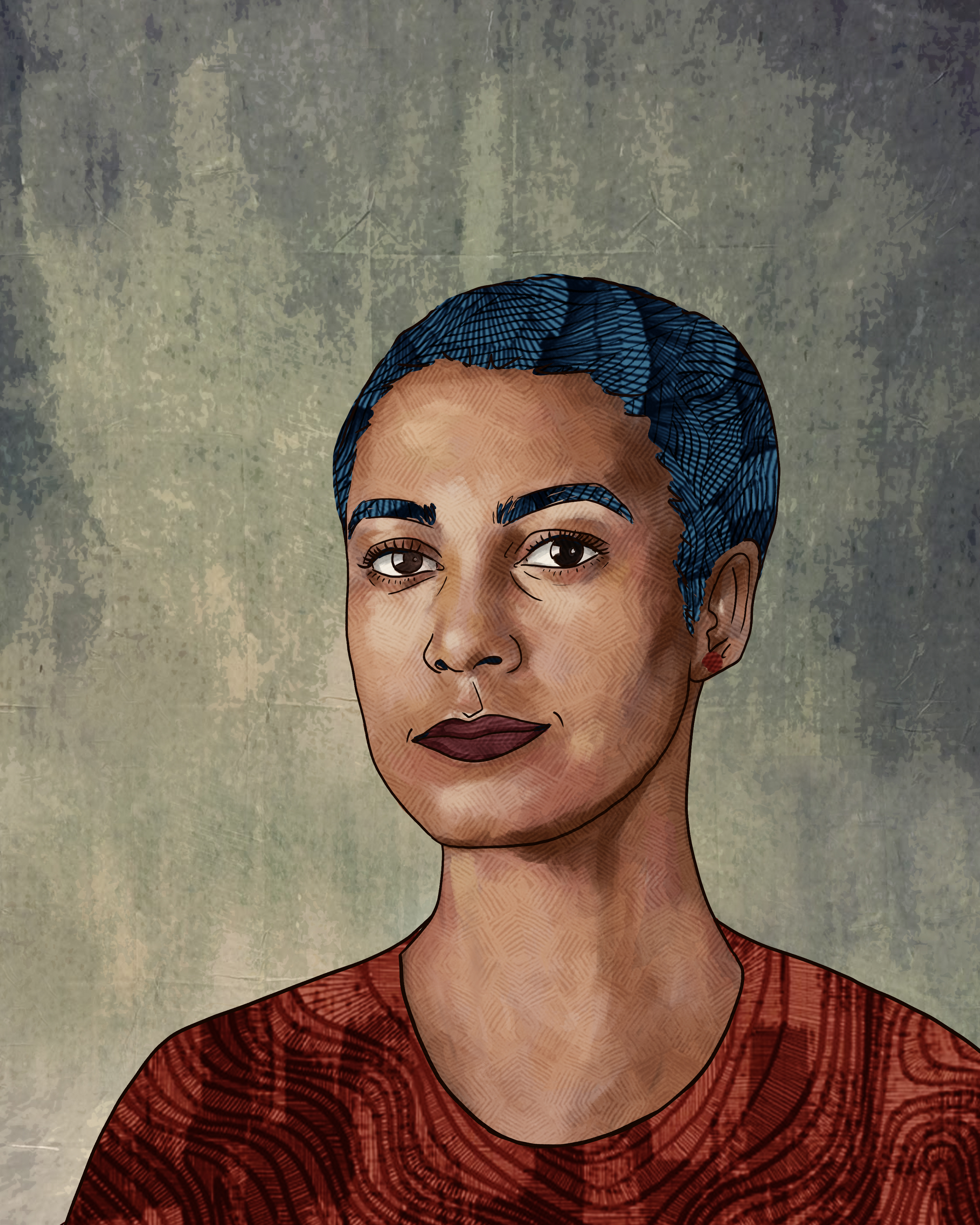
Maud Sulter
Biography
Maud Sulter was born in Glasgow, of Scots and Ghanaian descent: in her poem ‘Circa 1930’ she pointed out that these two cultures ‘are not as disparate as they might / at first seem. Clan-based societies / With long memories and global diasporas.’ The exploration of the continuing presence of Africa in Europe was one of her principal themes, explored through her art in a variety of media: text, photography, sound and performance.
Notable works by Sulter include Zabat (1987; London, V&A), a series of Cibachrome photographic portraits of contemporary Black artists, musicians and writers, posed as a theatre of ancient muses; Syrcas (1994; Wrexham and Portfolio Gallery, Edinburgh), a set of montages and texts linking the horrors of African slavery with the European persecution of minorities in the 1930s and 1940s; Jeanne Duval: a melodrama (2003; Scottish National Portrait Gallery). This last was a series of dramatically beautiful self-portraits as Baudelaire’s muse, Jeanne Duval.
As well as her academic writing, Sulter published several collections of poetry: As a Blackwoman (Akira Press, 1985), which won the Vera Bell Prize for poetry that year; Zabat (1989) and Sekhmet (Dumfries & Galloway Council, 2005); and a play about Jerry Rawlings, Service to Empire (2002). ‘I often address issues of lost and disputed territories, both psychological and physical’, she wrote in the anthology Dream State (1994). ‘The central body of my poetic work is unequivocally the love poetry which is addressed to both genders.’ Sekhmet begins with a roll-call of love and gratitude to friends, lovers, family across the world, to medics, and to the Ancestors, ‘who walked beside me when I needed them most and carried me forward when the terrain was too rough but never absolve me of the responsibility for my own life and identity.’